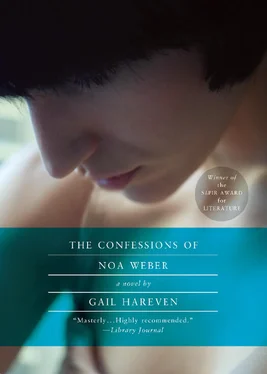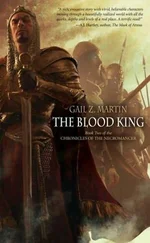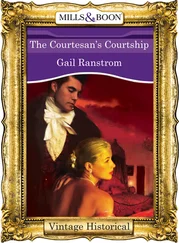My idea of the profession was of course absurd: a combination of Robin Hood and Clarence Darrow, doing justice and solving all Miriam Marie’s problems with the municipality. Two days after the beginning of the academic year I realized how grotesque this image was. But without an alternative direction, I continued to study law.
Sometimes during interviews I feel a kamikazi urge to crash into the truth. The bit about Clarence Darrow and social justice sounds good, even charming, I’ve used it a number of times, but I take good care to censor all the rest.
Interviewer: So how did it happen that you went to study law?
Feminist writer: It was a coincidence. With women, you know, things happen by chance. There was a man I wanted to impress.
Interviewer: Did you want him to fall in love with you?
Feminist writer: I knew I didn’t have a hope.
Interviewer: But surely he must have been impressed.…
Writer: He didn’t even know I was studying. You see, he wasn’t in the country at all, there was no contact between us. I just imagined that he was looking at me all the time.
Interviewer: And afterwards?
Writer: What afterwards? There is no afterwards. There is no earlier and later in love. When he felt like summoning me, I went to be his mistress. That’s the way it still is.
What’s missing in this confession is the benefit I derived from his imaginary gaze. Apart from the intense color of the world, apart from the sharpening of senses that comes with love, apart from the increased energy, there was also a specific benefit, a lot of specific benefits: what I described before as “holding my head high.” Under Alek’s imaginary gaze I couldn’t be a floor rag. And so in some strange way his gaze helped me push the baby carriage nobly up Tiberias Street when a heat wave had already pushed me out of the house, and helped me drag myself out of bed in the dark to light the kerosene stove in the kitchen and summarize “The Development of the Concept of Good Faith in German Law.”
The funny thing about it is that Alek, to the best of my knowledge, doesn’t give a damn about the way I or any other woman looks when she pushes a baby carriage, and studiousness was never one of his qualities. And nevertheless I mobilized his gaze in order to brush my teeth, dress properly, get onto the bus, photocopy legal precedents and understand what exactly Reuben and Simeon had done to Levi.
“NOT THE LOVELORN MAIDEN”
In the winter when we were still living together I found a copy of Eugene Onegin in a second-hand book store, and on good days I amused Alek by learning whole stanzas off it by heart, to which he would respond by quoting from the poem in Russian. Pushkin in his eyes was the prince of princes; the “poet of the golden age” was beyond any criticism or irony, which gave the poem such magical status in my eyes that in his absence I would read passages from it to myself out loud. The symbolists he was working on had not been translated into Hebrew — or if they had I never succeeded in finding the translations — and Dostoevsky he hated, so I was left with Onegin, who I saw as a key. Another way of touching Alek.
From reading it so many times I absorbed the story into myself to such an extent that when I fantasized about the return of my man, I imagined the scene in the words of the poet. When he returned I would be someone impossible to ignore. When he returned, a new Noa Weber would be revealed to his eyes. “Not the plain, timorous, dejected / and lovelorn maiden whom he’d known” but Noa Weber, a duchess who not only “never shivered, / paled, flushed, or lost composure’s grip—/ no, even her eyebrow never quivered, / she never even bit her lip.”
Even at the height of my fantasy I never deluded myself that in the light of my new incarnation my Onegin would suddenly fall in love with me. But when I sat poring over “Constitutional Law” at night, and when I stood up in my first staged trial to defend Levi against Reuben and Simeon, and when I walked into my literary editor’s office for the first time to talk about the manuscript of Blood Money— vulnerable and nervous as a child of eight on my first day at the town school — I mobilized his imaginary gaze, I sensed his imaginary eyes on me and heard his imaginary words: “could it be she … or had he dreamed? / the girl he’d scorned in what he deemed the modesty of her condition, / could it be she, who had just turned / away, so cool, so unconcerned?” And upon my word it made me noble. In my eyes at least.
The motif of the late return it’s called: when she languishes in love, he is indifferent or amused. And when he languishes in love, she no longer responds. In non-literary reality I don’t know of a single case where this trick worked. Later on I did make a number of genuine attempts not to respond, but in those first years all my Duchess fantasies were directed towards a very different end than that of Eugene Onegin . I wanted to meet him “cool and unconcerned” only so that he would strip me of my false indifference. I wanted not to flush and pale only in order for him to make me flush and pale again. It’s true that I wanted him to admire my small and great triumphs, but it’s also true that in my imagination I saw the lawyer’s gown as one more garment that he could strip me of.
NIRA WOOLF
“Female lawyers are sexy,” says Dr. Miles to Nira Woolf as he accompanies her on the courthouse steps, “I like strong women.” “Forget it,” replies my heroine. “Forget what?” asks the charming doctor. “Forget what’s in your head. I’m not interested in egos that want to lay feminist lawyers,” and neither of course in idiots who have no respect for a woman’s achievements, but this Nira Woolf doesn’t say.
In this world there is no Noa Weber who did not go to Usha Street on the second of July 1972 so that I have no control group for myself. Perhaps even without Alek the drive to achieve would have appeared in me, I don’t know, but what’s certain is that the initial urge was connected to Alek. To the desire to awaken his admiration and the desire to please him. In other words, it wasn’t some nobody who was in love with him, and it wasn’t with some nobody that he went to the Rabbinate, but with someone who was somebody. Someone whose love was a credit to him, because it was only with him that she turned into a floor rag.
Blood Money , the first in my Nira Woolf series, came out in 1982, and from then on the straightening of my spineless back proceeded at a considerable pace. But I’m putting the cart before the horse again, because in the summer of ’73 the era of holding my head high was far in the future, and I was still busy with the emergency patching up of Noa Weber, who cried a lot then; she cried day and night without any shame. I was only ashamed with Miriam, but Miriam retreated before my mother, telling me tactfully that I was welcome to visit her with the baby whenever I wanted to. My crying was real, my helplessness was not a total lie, and nevertheless there was an element of bribery in it. As if I was buying myself time with hysterical behaviour.
I remember how underneath the hysteria I imagined myself coming out cold and sober on the other side, and at the height of my depression, weeping between the starched sheets, I knew very well what I was doing, and what was happening inside me and around me. In the time that I bought with my weakness I allowed myself to indulge in all kinds of wild schemes. I would slip out of the house, take a taxi at dawn to the airport, and just as I was, without luggage or money, get on a plane to Heidelberg. I would join the foreign service or the Mossad, and they would send me to Heidelberg. I would get out of bed, go somewhere or other, and then I would walk and walk and walk until I fell. A small item in the newspaper would say: Young Israeli woman found dead on street in Heidelberg. Or a small item in the newspaper would say: The body of a young woman was found lying in the church of the Holy Sepulchre, cause of death unknown. I had these visions, not of actual suicide, but of walking and losing myself on my way to him, losing myself until I came to his door, and then perhaps he would let me in.
Читать дальше












